Cultural dishes bring happy memories

Food—what comes to your mind when you think of this word? Aroma, colour, spices, herbs, happiness, comfort, childhood memories? For me food means going back to my cultural roots, especially during this pandemic when I’m stuck at home.
Much as I love good food and will try new types of food without batting an eyelid, when it comes to cooking, I’m an indifferent one. That is until the lockdown started, and I couldn’t go out to eat. With no option but to stay indoors I scoured various YouTube food channels, remembered Ma’s amazing food, sought help from friends and put my love into practice. Today, I’m revelling in some of my own recipes or giving Ma’s recipes a new twist.
Unlike me, some of my friends have been churning out exotic dishes for years and love what they do. None of them are professional chefs—it’s their way of connecting with their culture and food matters to them. Here are their food journeys.
Disclaimer: Before you read further, these stories are about my friends’ food journeys and I don’t have any monetary transactions, nor am I advertising for them.

Abderazzaq Noor – Melbourne, Australia
A senior communications professional, Abderazzaq cooks regularly, having learnt to cook very early in life.
“My parents—both great cooks—were in the restaurant business so hanging around in the kitchen was normal for me. From the age of eight or nine I washed dishes, peeled potatoes and cut onions, waited on tables, and cooked small meals. As I grew up it became a passion and it was a way of connecting with my culture.”
It’s not surprising that Abderazzaq finds cooking therapeutic but being a vegetarian among the meat-loving Somalis he continues to innovate, experiment and recreate his own recipes. His blog, The Somali Kitchen is widely followed and you can find some exotic recipes.
“Cooking is a family affair,” Abderazzaq says, “and most weekends we will cook at home or go to friends’ homes for a cook-off. It’s a great experience, sharing different kinds of food, and sometimes I put my own twist to a food I’ve had.”
Abderazzaq is working with a close friend, Jamal Hashi, a Minneapolis based chef, on a Somali themed cookbook, which they hope to publish.
“It is a long process! We didn’t realise how time-consuming writing a cookbook can be. It is not just about the writing—it is also the research that comes with that, the recipe testing and refinement, photography and constant editing. We are learning so much not just about cooking, but ourselves too!” Stay tuned.
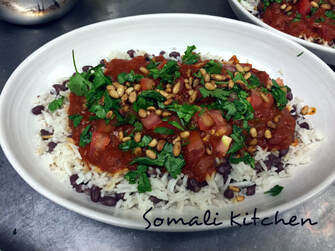

Neil Mukherjee – Surrey, United Kingdom
Neil an anaesthetist moved to the UK after completing his Bachelors of Medicine and Surgery in India. For the first few years he lived on packaged and takeaway foods but when he was diagnosed with a medical condition, he knew he had to change his lifestyle.
“My mum is a superb cook and I was missing her cooking, so I started to cook. Food for me is not just nutrition—it represents a holistic attitude to life. It brings back fond memories and represents one’s way of life and cultural heritage.”
The first food that Neil cooked was kolai’r daal (lentils), aloo poshto (potatoes with poppy seeds) and luchis (Indian fried flatbread)—quintessential Bengali comfort foods. “I was so excited when I cracked it,” he says.Today Neil is cooking more niche dishes and is perfecting regional Italian recipes. Since he loves travelling and entertaining, trying out new cuisines in the comfort of his own kitchen is therapeutic for him, especially after a long day at the hospital.
“And, my friends love me for it because there will be an invite once I’ve perfected a dish. My table is always overflowing with good food and wine.”
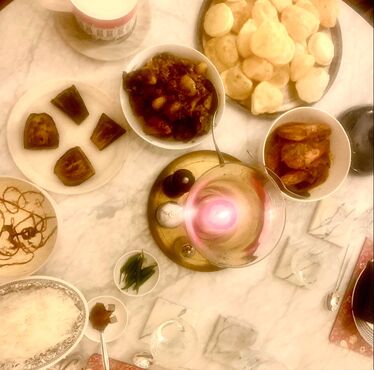
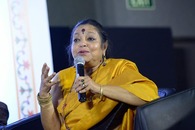
Pritha Sen – Gurgaon, India
Former journalist, Pritha is a development consultant and writer who wandered accidentally into food. A food curator and food anthropologist, she is known for her cooking and the history behind each dish she serves. For her there is no such thing as a lost recipe, you just have to find it.
Pritha’s relationship with food started early when her mum chose her of three sisters to check for the balance of flavours when cooking a particular dish. Growing up Pritha lived in a huge bungalow with many household helps. “Each came from a different state, and I was inquisitive about their origins and especially their food habits.
“Later as a young bride—far from home—I had to, by the corporate norms of the times, entertain quite a bit. But with limited income it had to be home-cooked food. This carried on when I started a job that demanded 14 – 16 hrs of work every day. When I got home, all I longed for was home cooked food. Even if I had time for only dal-chawal (lentils and rice), I would cook that. I realised it was a stress-buster. Not a passion.”
Quitting journalism to work in the social development sector further fuelled Pritha’s interest where she experienced real traditional food as she moved around in remote rural areas staying with the communities and eating with them. Soon the cooking turned into an academic exercise and she started looking at it closely and deconstructing the evolution of our food.
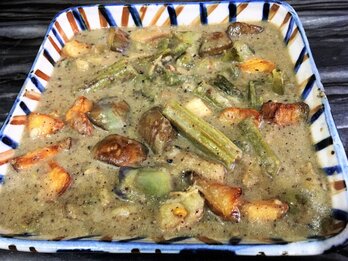
Today Pritha commands a huge respect in the food industry and is referred to variously as a food ethnographer, food anthropologist and food historian. She is regularly called on to curate special events at five-star hotels and is interviewed by the media on everything food. She has curated the menus for two restaurants in Goa and Mumbai.
“At the end of the day it’s not about showcasing my cooking skills but telling people the story of our cuisine and the inherent wisdom of it all. Food for me is identity—I am what I eat and that is the only real truth for me. Everything can change but our eating habits remain. We find comfort and solace in the foods of our childhood, in the foods that we have grown up eating,” says Pritha.

Sandeepa Mukherjee Dutta – New Jersey, USA
An engineer by profession, Sandeepa is the nom de plume behind the very popular blog Bong Mom’s Cookbook (www.bongcookbook.com). She’s the go-to for Bengali cooking and has been entertaining her readers for 12 years.
Like most young girls in India, Sandeepa didn’t cook when growing up and it was only after she married that she got inspired, seeing her husband cook delicious meals.
“The desire became more pronounced once my daughters were born—kind of a survival strategy and cooking wholesome healthy meals for them, something that my mum would cook for us,” Sandeepa says.
She turned to her Bengali roots and dug out age-old recipes and started blogging about food. Initially, this sharing was for her daughters and others like them who live overseas to connect with their Bengali roots, through the smell of Bengali cuisine. Slowly the readership grew, and Harper Collins contacted her to write a book, which has sold hundreds of copies worldwide.
“As a family we love trying out different dishes, especially when we’re travelling overseas but at home cooking my cultural dishes keeps me closely connected to my roots. While my daughters enjoy pizza and pasta, I also wanted them to enjoy and appreciate the layers of taste and flavours that Bengali dishes and food from India brings. India’s national foods are only butter chicken and paneer makhani.”
Cooking and blogging about food, which started as a hobby, has now elevated Sandeepa as a novelist and her soon-to-be published novel is, as you guessed it, centred around food.
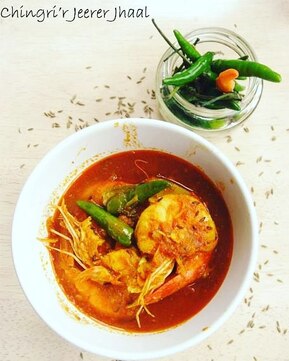
Recent Posts
- Mental health is as important as physical health
- World Health Day
- Autism Awareness Day – Autism Speaks
- World Health Day – Building a Fairer and Healthier World
- Sustainability – it is just about the environment?
- Living with ADHD – the lived experiences and the medical diagnosis
- Join us for an evening of Jashn
- Family Abuse Awareness

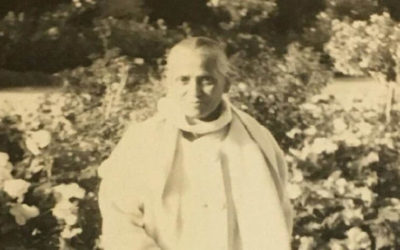


Recent Comments